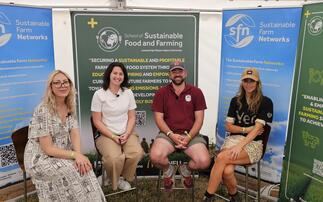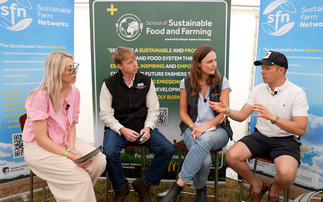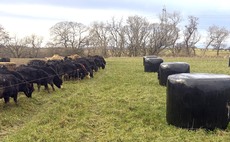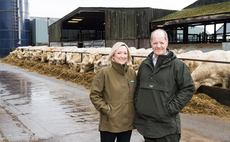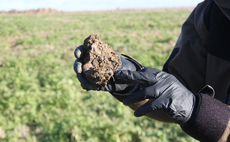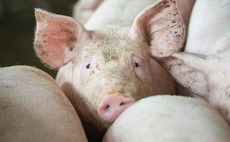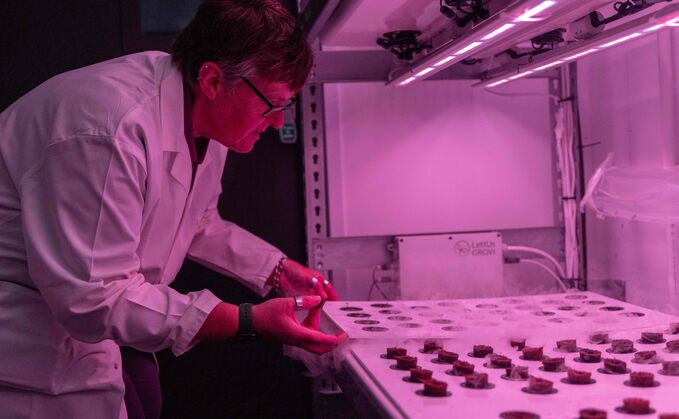
Professor Tracy Lawson, of Essex's School of Life Sciences, will be aiming to use innovative techniques to grow onions and help Stourgarden explore ways to make the production process more environmentally friendly.
Stourgarden, based in Great Horkesley, is one of the UK's leading onions growers and supplies produce to high-profile retailers, global restaurant chains and food manufacturers.
Professor Lawson will experiment with aeroponic growing methods to grow onions in a more sustainable way, which will see them grown in an air and mist environment.
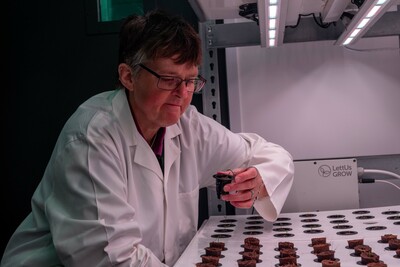
The research partnership will aim to reduce the carbon footprint of the production process, speed up growth, as well as prevent disease which can leave soil unusable for future crops.
"This project is extremely exciting as it expands on our ongoing research focused on manipulating light within controlled environments and vertical farms," Professor Lawson said.
"We're now channeling this expertise towards a crop with diverse growth stages, ranging from seed germination to bulb formation.
"Working directly with a local company to develop the right conditions for rapid growth demonstrated the translation aspect and potential impact of this work."
What is the goal of the collaboration?
Project lead from Stourgarden, Jonathan Bell, says the project will put the growing of onions under the microscope and allow us to understand more about the crop's growth and how environmental conditions affect an onion plant.
We will be looking to the future, and how Controlled Environment Agriculture can play a part in the supply of onions to UK consumers. To wholly replace traditional field production is not the aim, but there is a role for CEA to play in improving current growing and supply
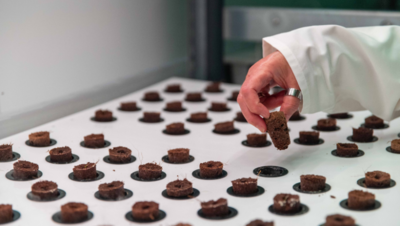
"Early lab trials at the University of Essex have shown onion plants respond well in a controlled environment and we plan to build on knowledge already gained."
The experiment will take place inside specially designed container farm equipped with the latest aeroponic irrigation equipment, supplied by LettUs Grow.
Using LettUs Grow's ultrasonic aeroponics, plants are grown without soil and irrigated using a nutrient-dense mist.
This benefits the plant by increasing access to oxygen and boosting plant health, resulting in increased growth rates and yields.
This method is also resource efficient as it reduces use of fertiliser and water.
Working together to build a more sustainable future
Jack Farmer, Chief Scientific Officer & co-founder at LettUs Grow, said: "We're thrilled to be working with both Stourgarden and the University of Essex on a project that's at the cutting edge of innovation within our industry. Aeroponics is a powerful irrigation method that has the potential to be applied to a variety of crops within our diets.
"Onions are a staple crop in the UK, so we're really excited to be exploring how aeroponics can improve the sustainability & efficiency of the growing process. Enabling new production methods with a positive impact is at the core of our company mission, so we really can't wait to get started."
The project is being jointly funded by grants from Innovate UK and the Biotechnology and Biological Sciences Research Council.
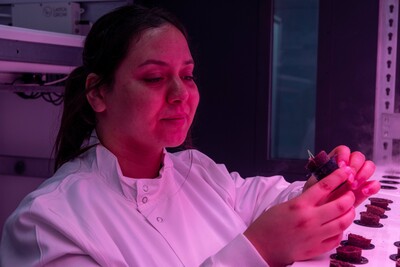
Holly Leonard, Innovation Partnerships Manager at Essex, said: "We're delighted to be working with local partners, Stourgarden on this project.
"Their status as the UK's largest producer of onions means this project has the potential to positively impact food production in the UK.
"Not only is the project going to advance scientific understanding through research, if we can prove the commercial case for protected growing of traditional field crops such as onions, there is potential to increase UK food security by extending growing seasons and reducing reliance on imports."
Do you have an idea?
The University of Essex have over 700 researchers who are ready to collaborate with industry partners and bring innovation into the light. From soil health to vertical farming, they are one of the only universities to combine up to eight different research groups to deliver innovation across agriculture.
Find out how collaboration opportunities with Essex can transform your business and unlock Innovate UK funding.
This post is funded by the University of Essex.








